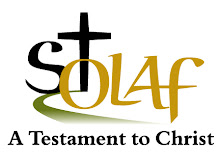I can’t talk about prayer without talking a little bit about the Psalms. Yes prayer and Psalms go together like chocolate, marshmallows and graham crackers. Psalms are part of the Bible and are discussed in the Catechism of the Catholic Church (CCC). They are the prayers of the people of Israel, most of which are attributed to being written by King David.
The Psalms express how the people of Israel encountered God. The Psalms as prayer shows us how the Israelites communicate with their creator and they express a wide range of emotions, from joy to anger to fear… Today we can use the Psalms, in the same way. Our world today may seem completely different than when the Psalms were written, but if we take the time to read the Psalms we will find that they are pertinent to today’s world as well.
There are Psalms of lament, the people of Israel crying out to God in an unadulterated and direct manner or complaining about anything and everything that is wrong with their lives. They then go on to express their trust in God, petition Him for help, praise Him and give their words of promise to follow Him in all ways.
The Psalms of Thanksgiving are the peoples way of acknowledging how that their laments were answered, particularly recovery from an illness. In that day sickness was seen as a punishment for not following God’s Commandments and then the recovery was seen as God’s love for the person afflicted. If recovery was not granted it was assumed that the person was not a friend of God.
Finally, there are Hymns. They were considered to be a call to worship and often indicated that the premise of the Palms was to be praise and this was introduced as to what the praise if for.
The Hebrew alphabet played a role in some of the Psalms when some of them were formed in the way of an acrostic poem. These are poems where each line or section of the poem begins with the successive letter of the alphabet, which in the case of the Psalms would be the Hebrew alphabet, so in our looking at them we wouldn’t necessarily see that pattern.
The CCC tells us that “…the psalms were gradually collected into the five books of the Psalter (or “Praises”), the masterwork of prayer in the Old Testament.” It goes on to explain to us that the prayer of the Psalms recalls the events in the lives of the Hebrew people, the promise God made, what may happen in the future even to the end of time. Christ as a Hebrew prayed the Psalms and the Psalms were fulfilled in Him. They are seen as a spontaneous and simplistic prayer showing the desire for God throughout.
So, perhaps it is time to step back and take a second look at the Book of Psalms in the Old Testament and really let the meaning sink in to help us in today’s world.
(Catechism of the Catholic Church: October 2010, USCCB, Libreria Editrice Vaticana; Collegeville Bible Handbook: 1997, Liturgical Press, Collegville MN)



